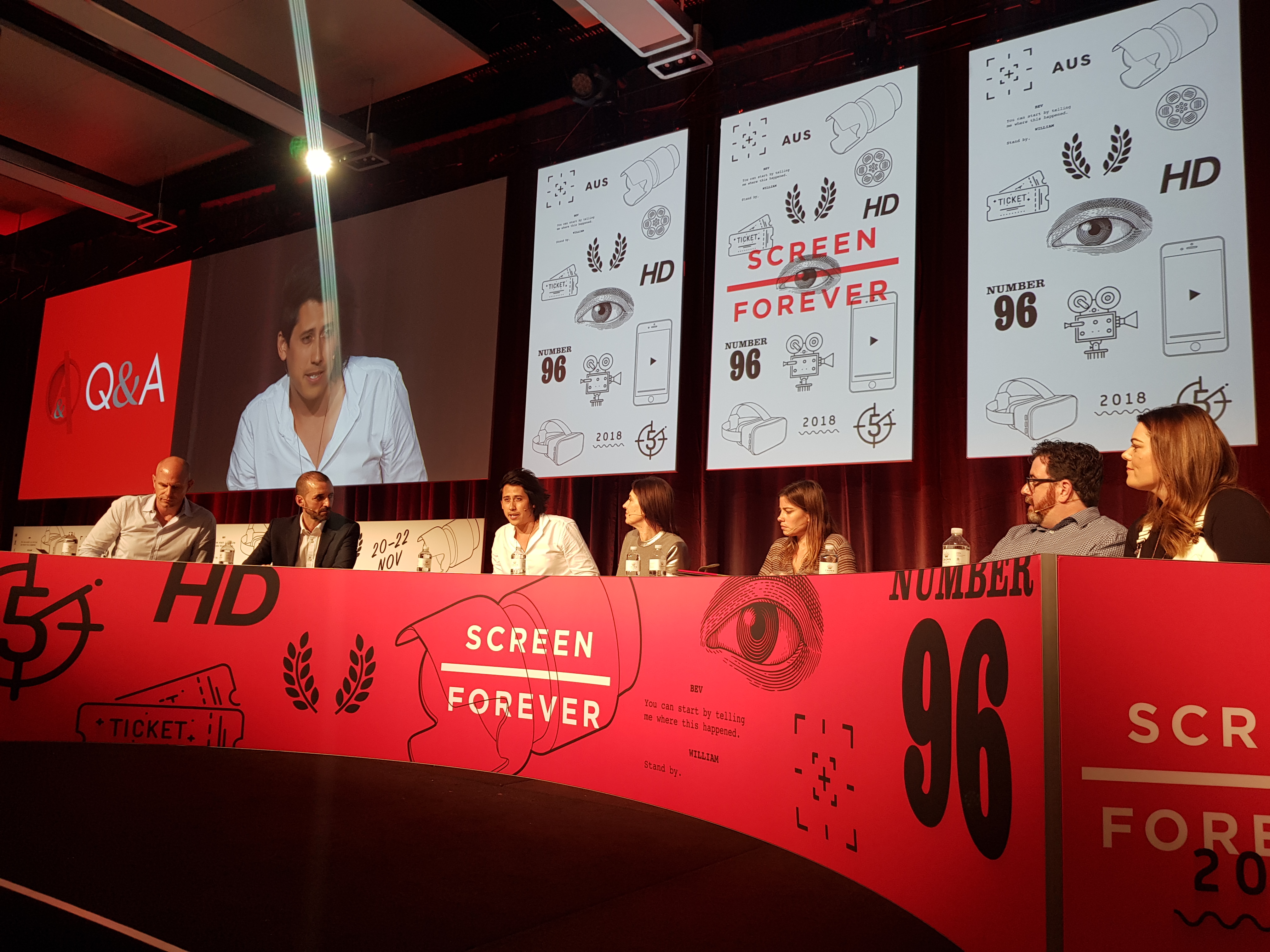Netflix and Stan need local content quotas: Senator Sarah Hanson-Young
The time has come to force Netflix and Stan to create a certain amount of Australian content should they wish to continue to operate here, Greens Senator Sarah Hanson Young has argued, along with a number of screen industry executives.
Hanson-Young also pleaded with the local commercial free-to-air networks to create more compelling local stories, saying their reliance on reality television formats is not good enough.

Chris Oliver-Taylor, Neil Peplow, Jordan Nguyen, Virginia Trioli, Brooke Satchwell, Kevin Whyte and Sarah Hanson-Young at Screen-Forever
Arguing that now is the time for the Australian screen industry to double down on local content, Hanson-Young said the same rules needed to apply to all players.


What proponents of quotas on streaming services forget is that if you force rules and quotas to ‘create a level playing field’ then you also have to give the same rights that free to air has to ALL streaming services including the millions of dollars in taxpayers subsidies that free to air channels recieve every year.
We shouldn’t have quotas period, it’s just a form of Protectionism for an industry that needs the Government to hold its hand, let the market determine the outcome.
It’s not just about creating Australian jobs in the broadcast industry. Quotas prevent Australia from culturally becoming the 51st state of the US.
I agree Nick, but around the other way. It is culture first and the jobs are the icing on the cake.
Surprise, a politician and a lobby group conflating two separate arguments.
You could easily make the argument that the average quality of the original programming on Netflix, Stan and Amazon is an order of magnitude higher than that of commercial free to air networks.
Job protection measures for local industry is separate. And always a losing battle. Putting off the inevitable, usually at taxpayer and consumer expense. See: local car assembly.
Netflix has demonstrated a willingness for global production based on the story and production quality. e.g. Dark, Babylon Berlin, Money Heist. It grows their audience in those markets and these shows have proved popular all over the world.
If creative Australians can tell and execute a good story, the opportunities for a global audience are likely better than ever.
It is much easier for lobbyists and politicians to grimly hang on to the past than embrace an unknown future.
Great to see the Greens supporting local industry unlike the other two mob of idiots supporting their mate Rupert
I god no , Australian tv shows now are dreadful.
Our stories, keeping culture alive and carrying us forward. #makeitaustralian
I totally agree, with Netflix now at 10 million Australian subscriptions they should at least be bound to reinvesting a small percentage of their turnover back into the local industry for being able to trade here. Even at as little as 1% we’re talking around some $15 million funnelled into exclusively producing, or investing into joint ventures for local content.
Great. Let’s force streaming companies to buy junk that no-one will watch. How about letting the market provide people with the content they want?
Every time Australia has dumped its content quotas our film and tv industry simply dies. We are a small market and there is no way we can survive without support which ensures keeping Australian stories on air/in cinemas, Australian people in work locally and a fair playing field against the enormous conglomerates which can dump content here at a fraction of the cost it takes to produce it. Europe has 30% quotas on streaming video services and we should do something similar.